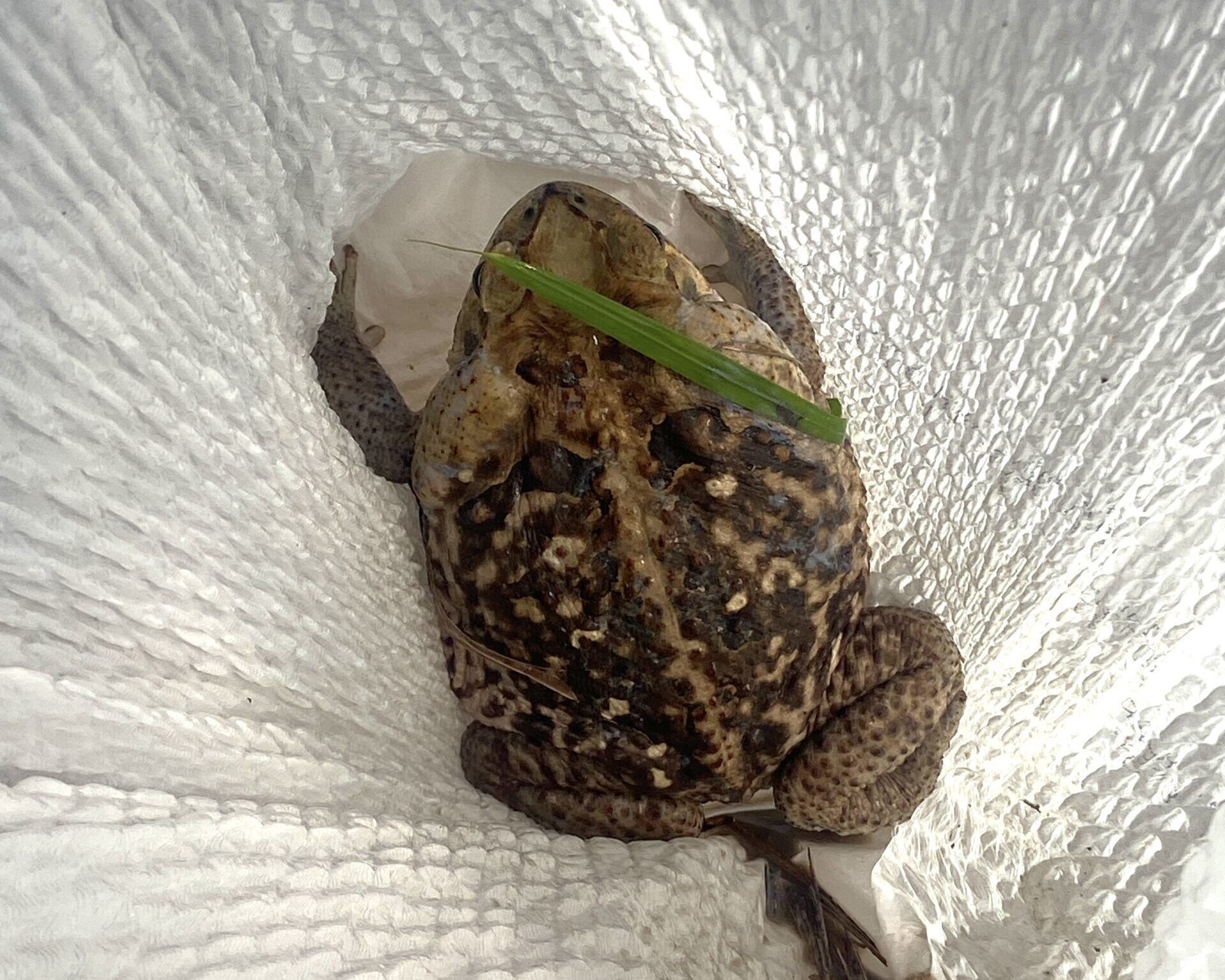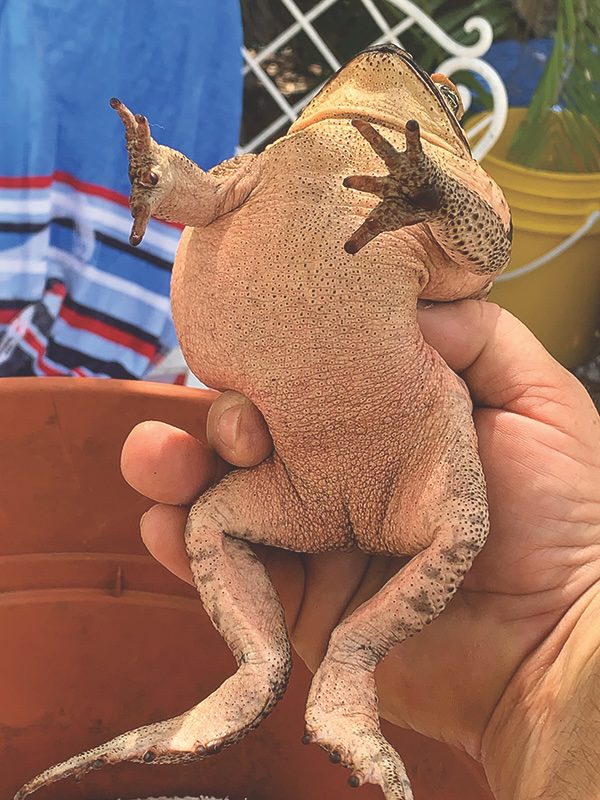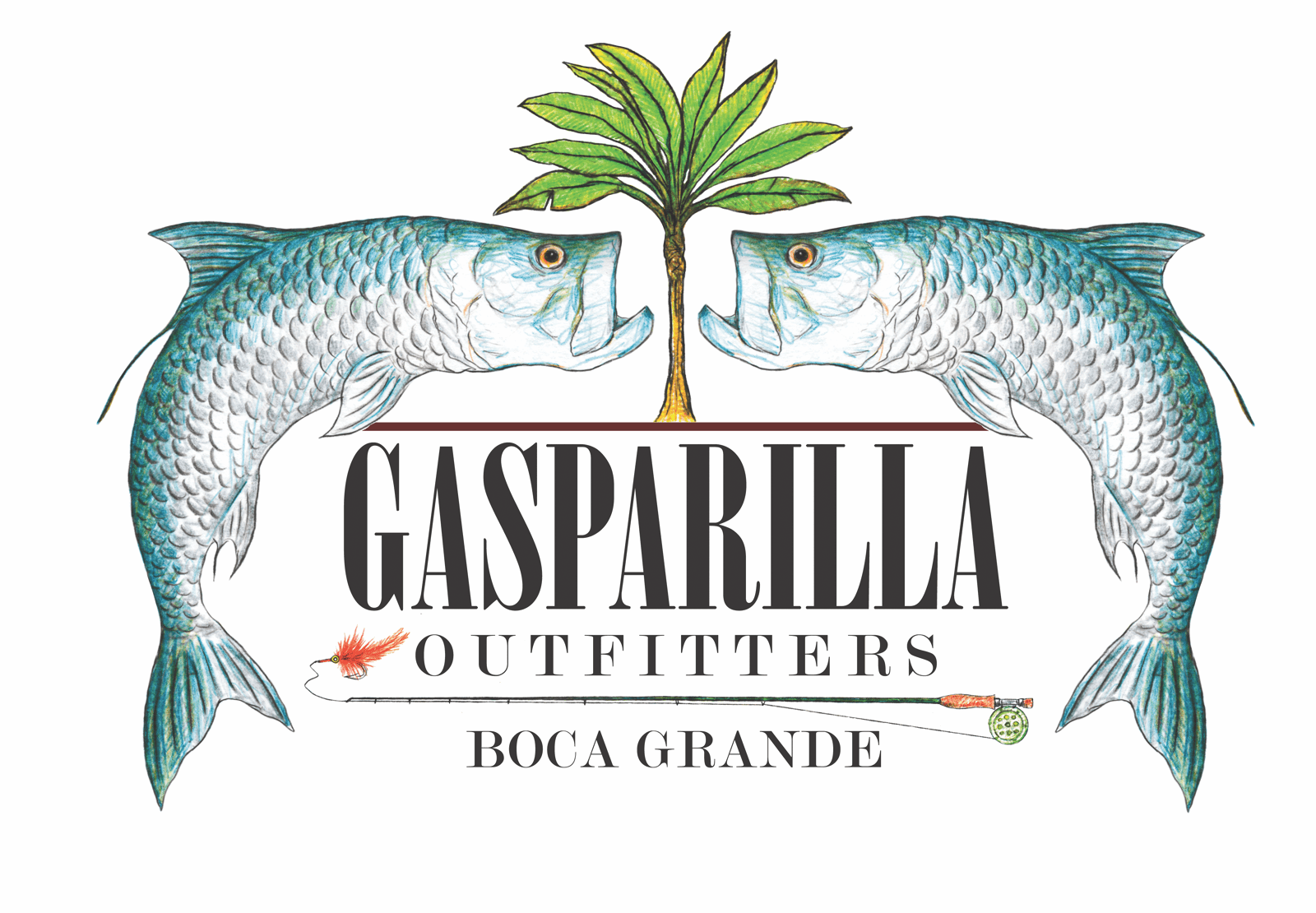Bagged a sweet cane toad on Park Avenue

A giant seven-inch poison cane toad was caught and bagged in the alley behind the Boca Beacon office on Tuesday, July 2.
The cane toad (also known as the bufo, giant or marine toad) is an invasive species to Florida that secretes a poisonous white bufotoxin, seen in the bag. They can be deadly to animals or pets if consumed. Humans should avoid touching them as they secrete the toxin.
The toad pictured was caught with reptile snake tongs; these are must-have equipment for Boca Grande and are available on Amazon. There were a number found on the island in 2022, when two of them were at The Island School. They are prolific, and can lay eight to 25,000 eggs at once, in long jelly like strings that can reach over 50 feet, and resemble LED light strands.
They are commonly found in yards, around buildings or near canals and ponds, according to the Florida Fish and Wildlife Conservation Commission. It is legal indeed encouraged for people to remove these toads from private property, as long as they are killed humanely.

Cane toads are mostly native to Central and South America, but they were reportedly introduced to Florida in the 1930s to manage pests in sugarcane fields and are a scourge around the world. They breed year-round in areas with water, especially after periods of rainy weather. Unlike the native southern toad, they can grow as large as nine inches. They can live for 25 years.
To keep cane toads off of your property, the Florida Wildlife recommends cutting your grass regularly to keep it short, filling in any holes, trimming the underside of shrubs, keeping branches or riprap off the ground, clearing away brush piles and removing food that can attract cane toads.









